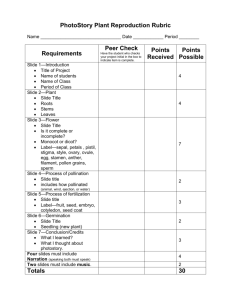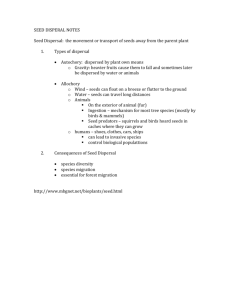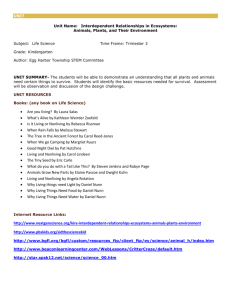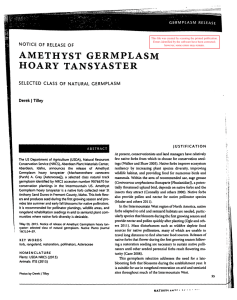US Program to Protect Seeds Mismanaged, Lawsuit Charges
advertisement
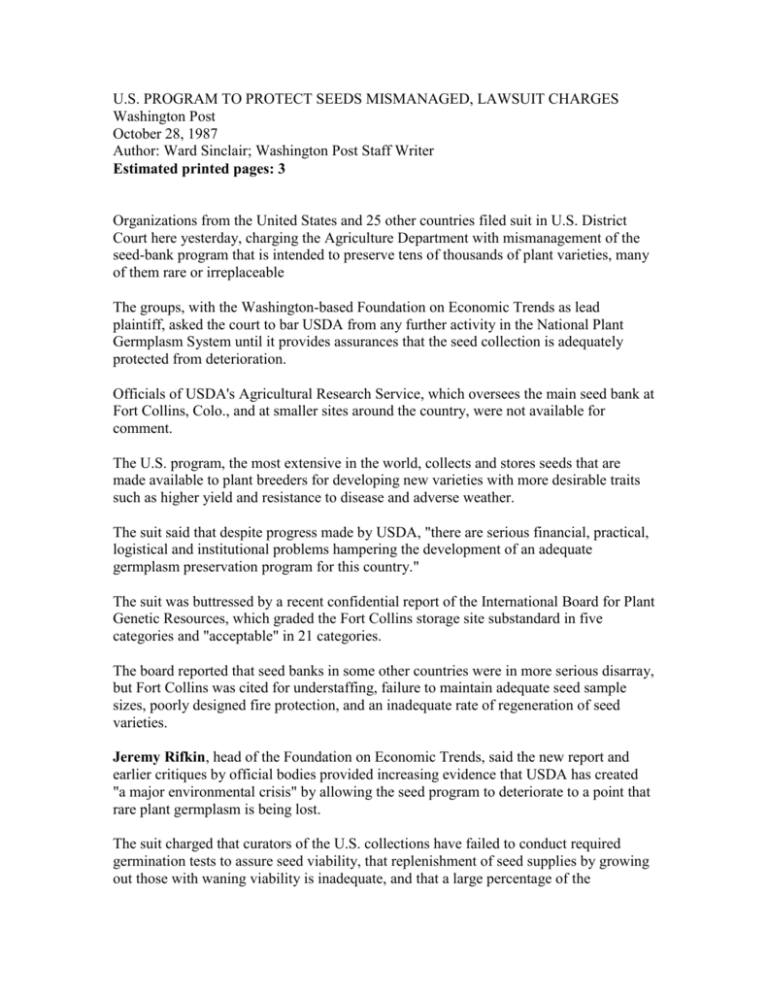
U.S. PROGRAM TO PROTECT SEEDS MISMANAGED, LAWSUIT CHARGES Washington Post October 28, 1987 Author: Ward Sinclair; Washington Post Staff Writer Estimated printed pages: 3 Organizations from the United States and 25 other countries filed suit in U.S. District Court here yesterday, charging the Agriculture Department with mismanagement of the seed-bank program that is intended to preserve tens of thousands of plant varieties, many of them rare or irreplaceable The groups, with the Washington-based Foundation on Economic Trends as lead plaintiff, asked the court to bar USDA from any further activity in the National Plant Germplasm System until it provides assurances that the seed collection is adequately protected from deterioration. Officials of USDA's Agricultural Research Service, which oversees the main seed bank at Fort Collins, Colo., and at smaller sites around the country, were not available for comment. The U.S. program, the most extensive in the world, collects and stores seeds that are made available to plant breeders for developing new varieties with more desirable traits such as higher yield and resistance to disease and adverse weather. The suit said that despite progress made by USDA, "there are serious financial, practical, logistical and institutional problems hampering the development of an adequate germplasm preservation program for this country." The suit was buttressed by a recent confidential report of the International Board for Plant Genetic Resources, which graded the Fort Collins storage site substandard in five categories and "acceptable" in 21 categories. The board reported that seed banks in some other countries were in more serious disarray, but Fort Collins was cited for understaffing, failure to maintain adequate seed sample sizes, poorly designed fire protection, and an inadequate rate of regeneration of seed varieties. Jeremy Rifkin, head of the Foundation on Economic Trends, said the new report and earlier critiques by official bodies provided increasing evidence that USDA has created "a major environmental crisis" by allowing the seed program to deteriorate to a point that rare plant germplasm is being lost. The suit charged that curators of the U.S. collections have failed to conduct required germination tests to assure seed viability, that replenishment of seed supplies by growing out those with waning viability is inadequate, and that a large percentage of the collections are so poorly identified that they are of little use to plant breeders. The suit also contended that the seed program is understaffed -- the international board review found that Fort Collins did not have a seed physiologist -- and that many storage facilities are inadequate. House and Senate Appropriations committees this month approved a USDA request for $1 million to begin planning and designing an addition to the Fort Collins laboratory. The suit is part of a long-running dispute between Rifkin's foundation and the department over management of the germplasm program. The plaintiffs in yesterday's suit, including Canadian farmers, international agricultural organizations and individuals, charged in a 1985 suit that USDA had failed to file an environmental impact statement for the seed program under the National Environmental Policy Act (NEPA). That suit was dropped after USDA agreed to conduct an environmental assessment -- a prelude to a full-scale impact statement. But the assessment found that the seed program had no environmental impact. That finding led to yesterday's litigation, which argued that USDA had failed to take the "hard look" required by NEPA Edition: FINAL Section: A SECTION Page: a9 Company Name: AGRICULTURE DEPARTMENT; FOUNDATION ON ECONOMIC TRENDS; AGRICULTURAL RESEARCH SERVICE; INTERNATIONAL BOARD FOR PLANT GENETIC RESOURCES Index Terms: NEWS NATIONAL; JEREMY RIFKIN; Lawsuits; Plants; Business management; Arizona; District of Columbia Copyright 1987 The Washington Post Record Number: 89244


